
|
includes two metal and resin M3A1 Armored Cars, two metal and resin Jeeps, one plastic Commander sprue and two Unit cards. Each Armored Recon Platoon has two patrols of four vehicles each. The US Army likes its reconnaissance units to pack a punch. The M3A1 carries three machine-guns—one .50-calibre (12.7mm) and two .30 calibre (7.62 mm) mounted on a sliding rail around the top of the passenger compartment. Before it speeds back to report on enemy positions, it is more than capable of mowing down any enemy infantry caught in the open. |
|
| Along with the Scout Cars, each Armored Recon Patrol includes two of the famous general purpose light utilities vehicles known as the Jeep. Officially named the Truck, ¼-ton 4x4, Command Reconnaissance, the Willy’s Jeep is capable of carrying men and light loads almost anywhere. Its four-wheel drive allows it to climb mountain passes and traverse deep mud, sand or snow, while its 100km/h (60mph) top speed makes it even better on roads. | |
|
The Allies have the fascists on the run in North Africa, but the fight is not over yet. The United States is the newest army to enter the war. They boast some of the best tanks in the world, backed up by well-equipped infantry, either marching to battle on foot or riding in half-tracks, and the latest deadly tank destroyers. Their troops are inexperienced, but they have trained hard and are eager to prove themselves. They will need to learn quickly, as they face a cunning and battle-hardened enemy. |
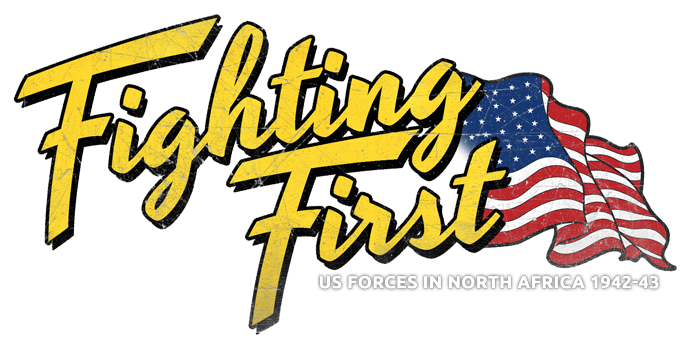 |
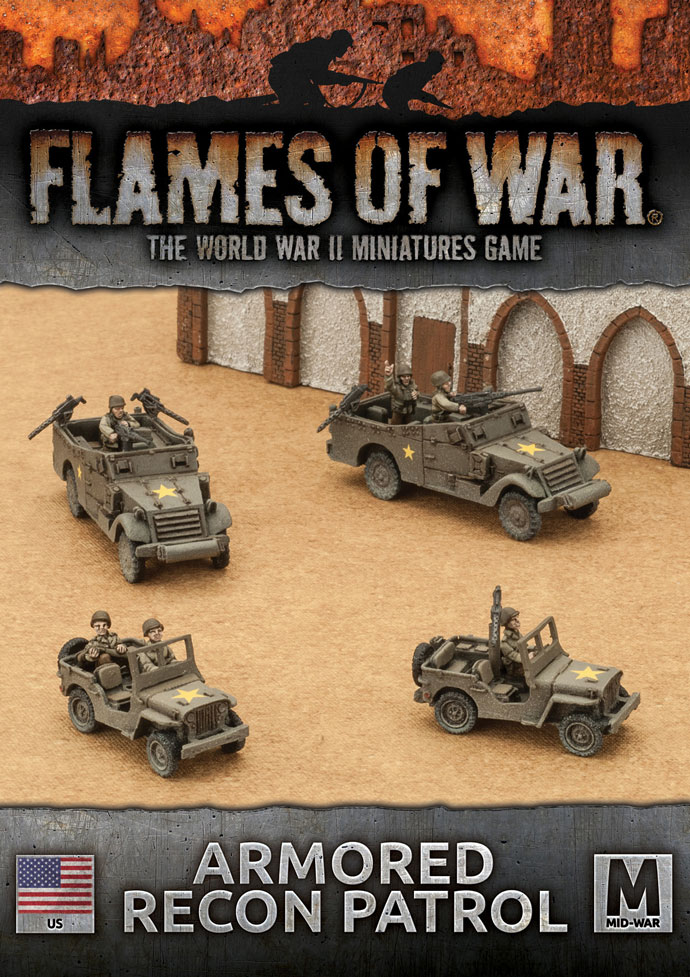 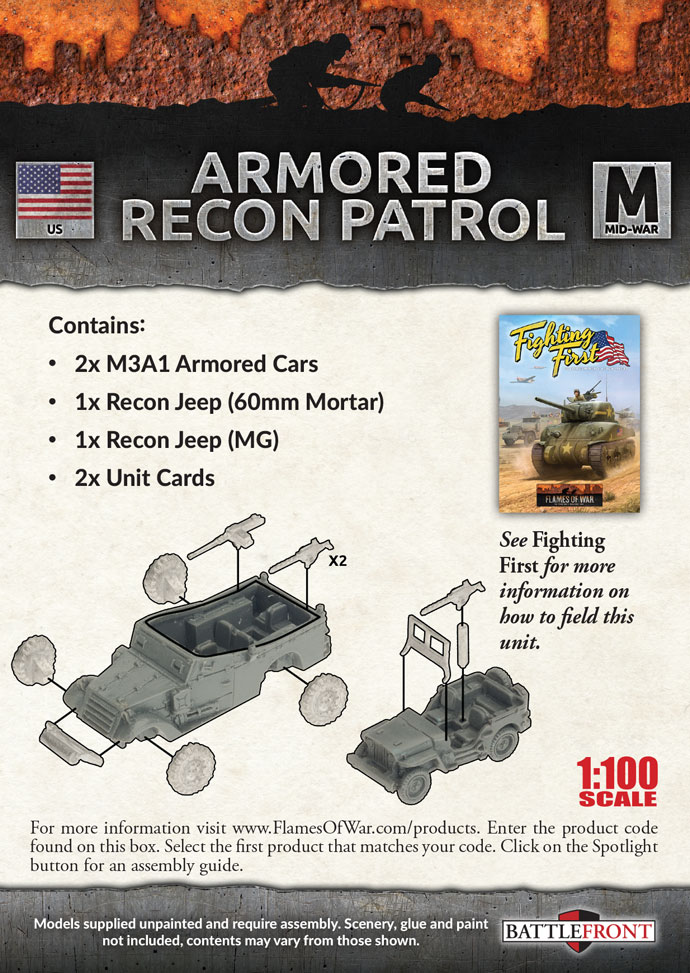
|
|
 |
|
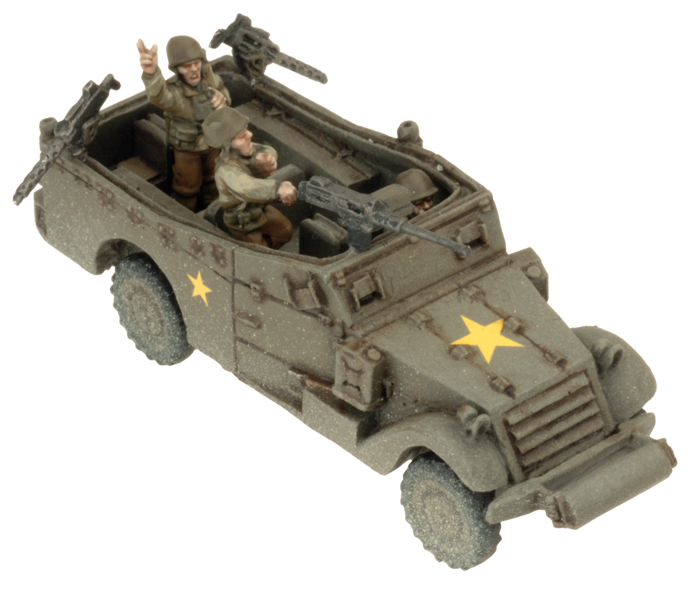 |
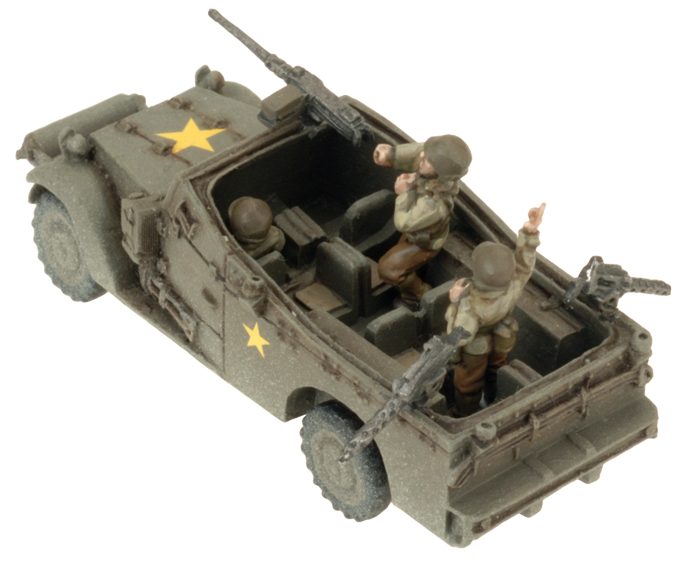 |
|
The M3 Scout Car was first produced in 1938. It was used during the North African campaign for scouting, but then was largely relegated to secondary duties. Initially, the scout car was primarily used by armoured and reconnaissance units. But as it was more suited to road use than cross-country the M2 half-track was developed. |
|
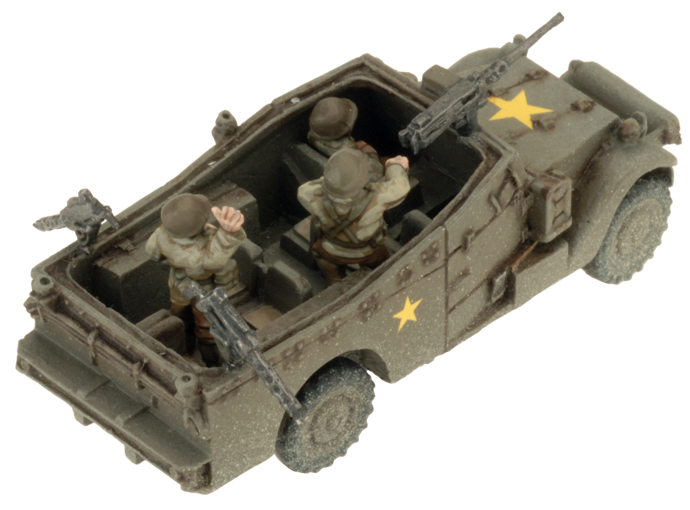 |
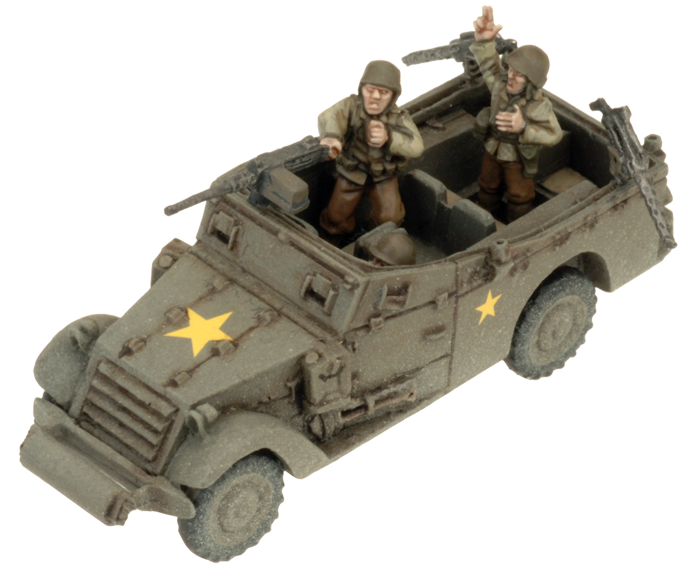 |
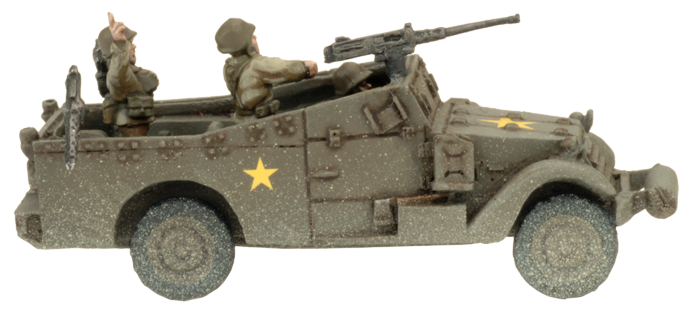 |
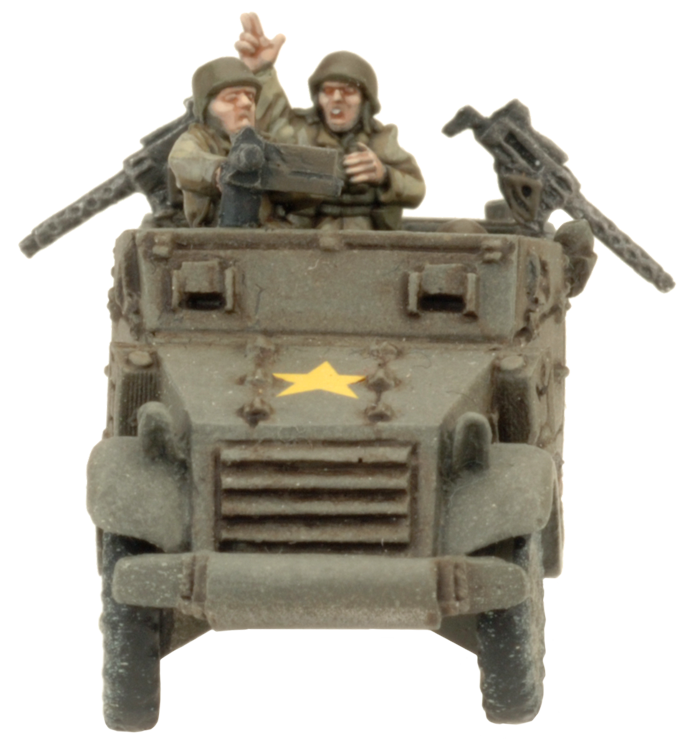 |
|
This vehicle could carry eight and was armed with a .50 M2 machine gun in the front & two .30 1917 Brownings in the rear. All three guns were mounted on a skate rail that followed the circumference of the fighting compartment and the three machine guns combined, could bring down a lot of fire on a target in any direction. |
|
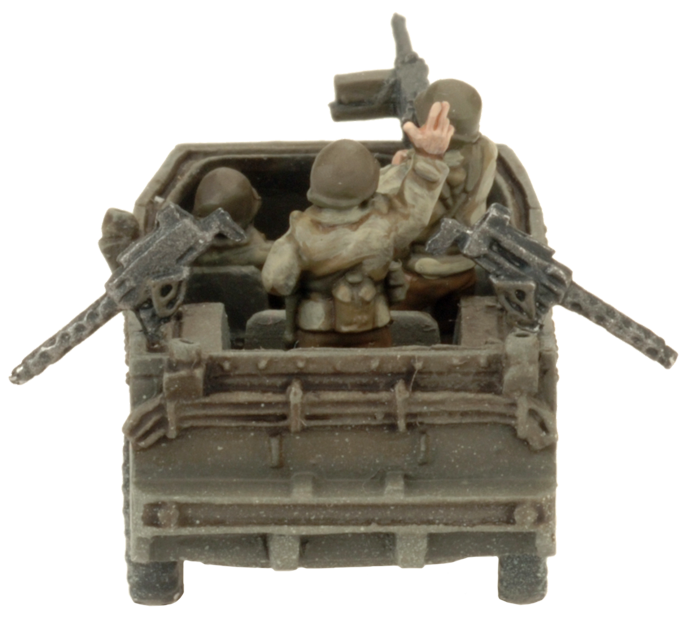 |
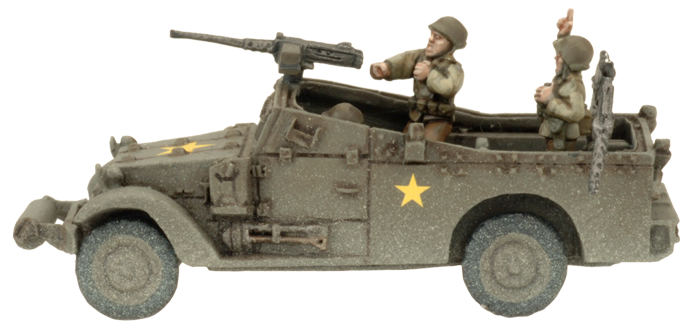 |
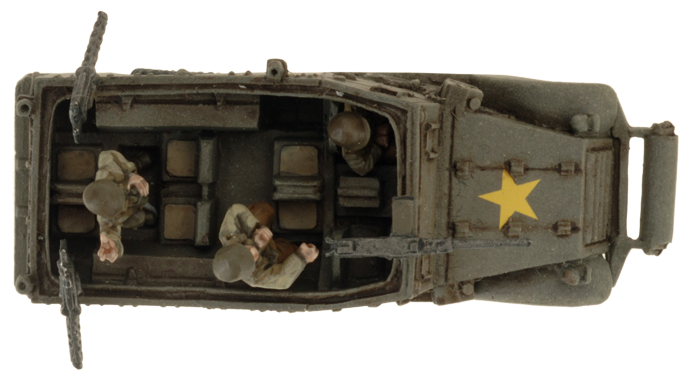 |
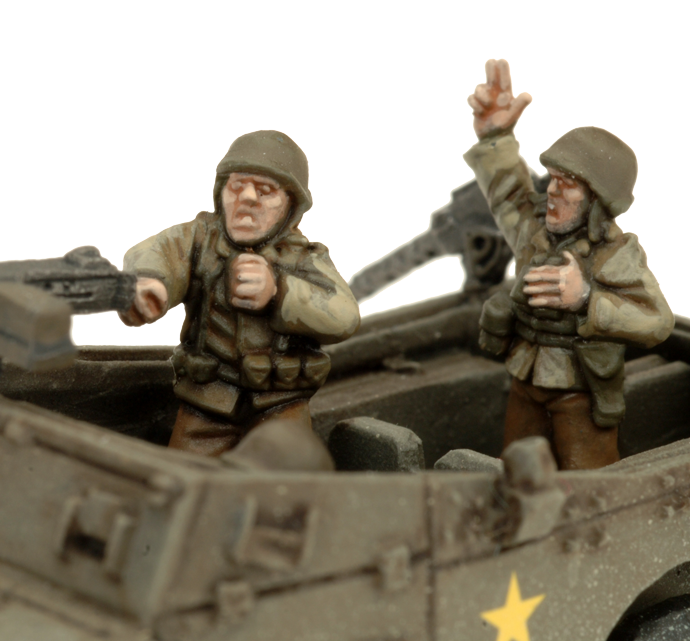 |
 |
|
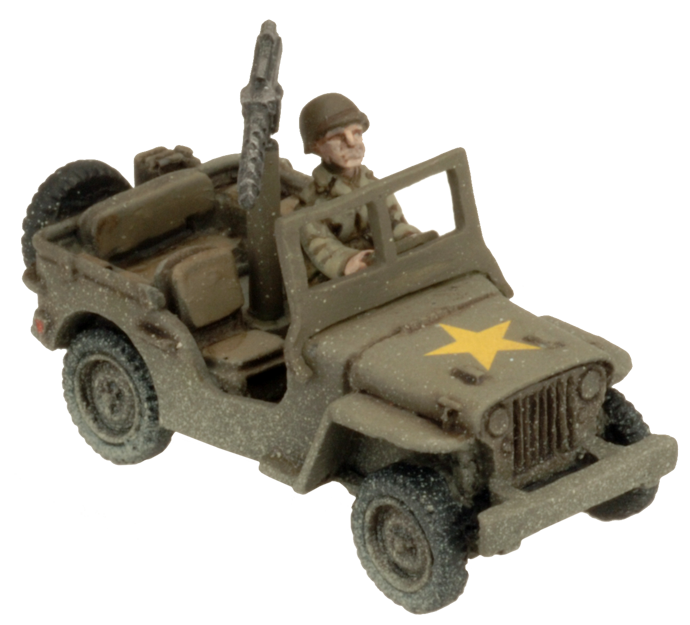 |
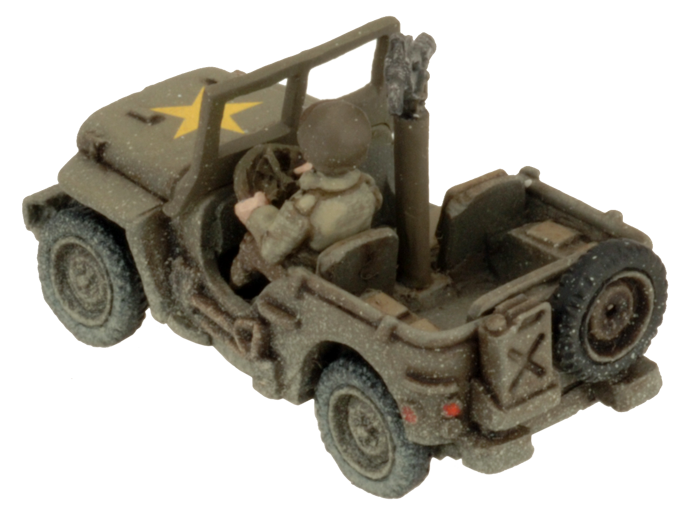 |
|
On September 23, 1940 in response to an Army Invitation For Bids, the American Bantam Car Company of Butler, Pa. delivered a prototype vehicle to Camp Holabird for testing. The test vehicle was immediately recognized by the Army as an important and innovative vehicle. Delivered and tested as Bantam Reconnaissance Car #1001, it was soon thereafter that it’s testers dubbed it the "Jeep". |
|
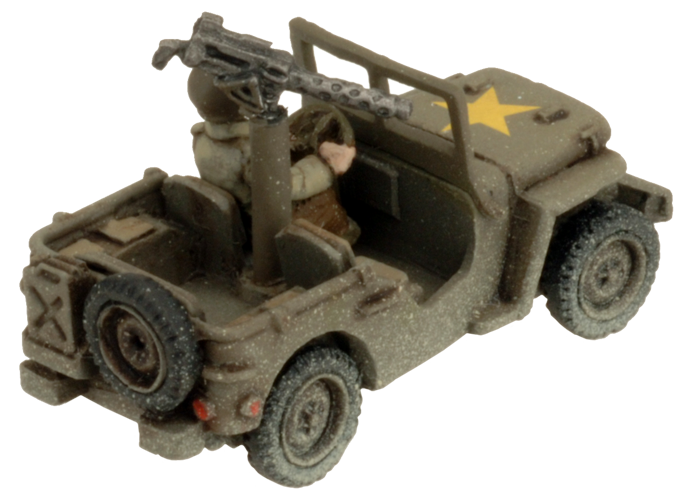 |
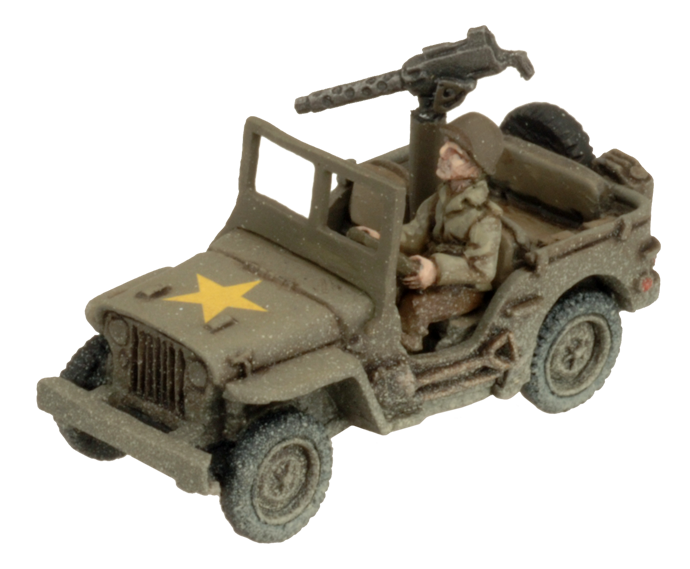 |
| Though the design and development of the first prototype jeep was primarily the work of Bantam Car Co., both Willys and Ford later supplied prototypes to the Army also. The Army tested all three designs. As the test went on the three companies gradually borrowed ideas from one another until they were all very similar. The Contract was awarded to Willys, and when the war broke out for America in 1941 Ford was brought on board to manufacture the Willy’s design under licence. | |
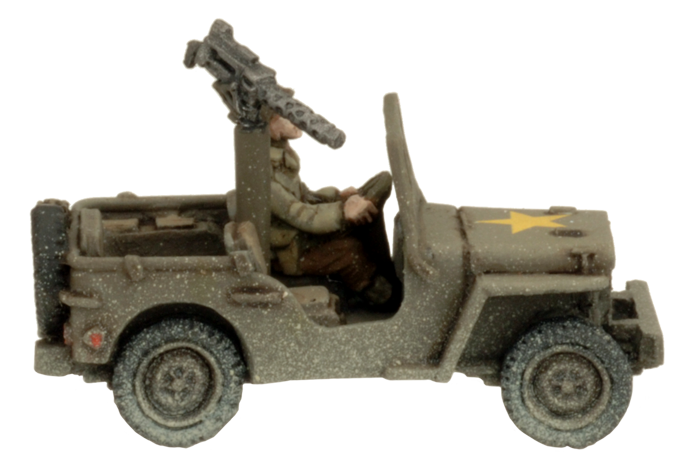 |
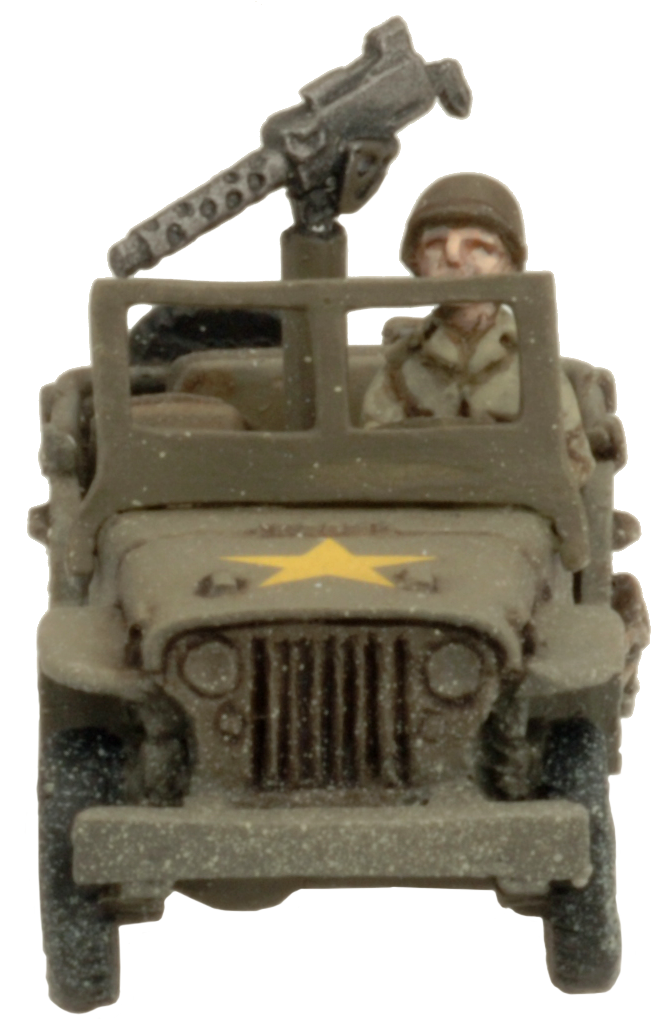 |
| Willys and Ford went on to produce approximately 650,000 standardized jeeps between November 1941 and August 1945. Ford stopped producing jeeps with the end of WWII, but Willys adopted the jeep name and developed many successful civilian versions of the trusty wartime jeep. | |
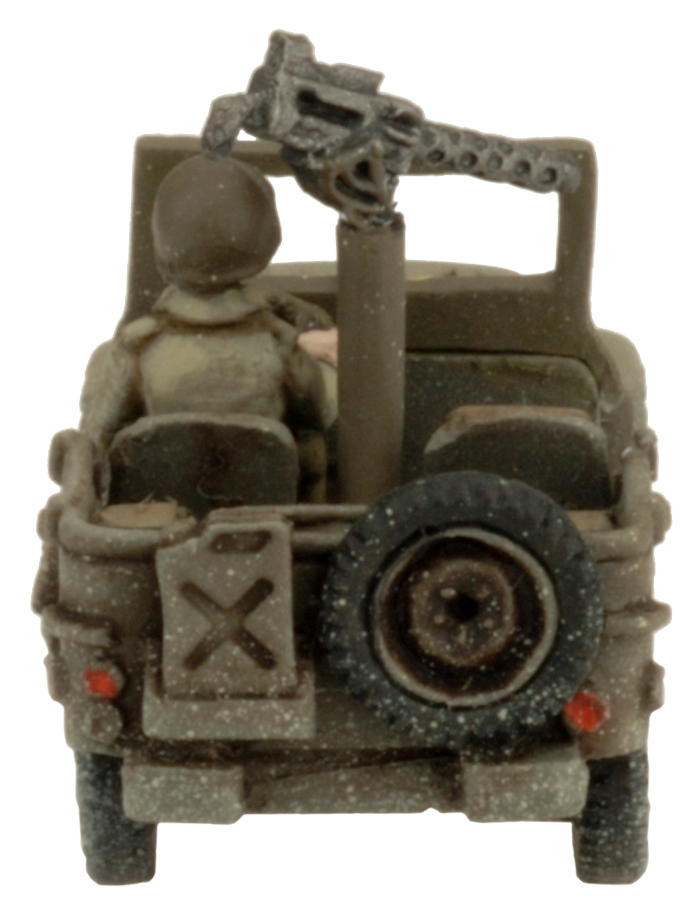 |
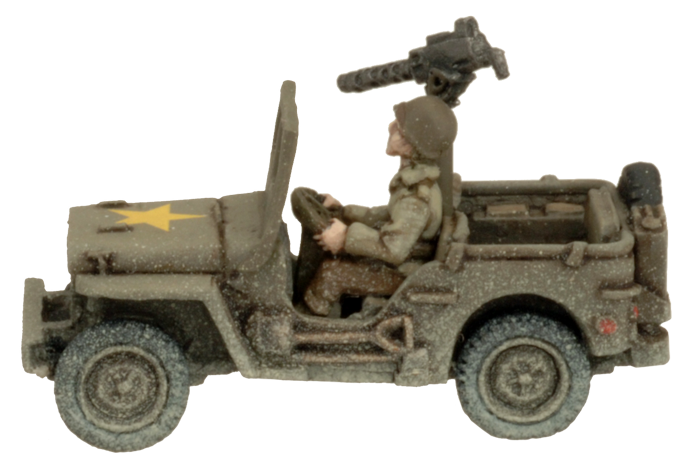 |
| Its simple, robust design gave the WWII jeep a legendary reliability in the field. The jeep served well beyond it’s intended purpose acting as not only a Reconnaissance Car, but as weapons platform, ambulance, troop transport, equipment hauler, gun tractor, and in many other roles. It was beloved by the troops and remains one of the most recognizable vehicles in the world. | |
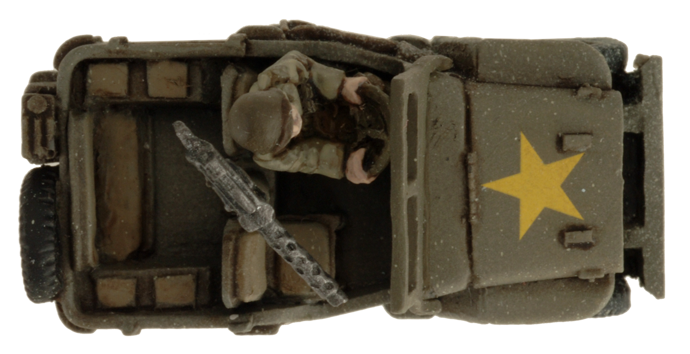 |
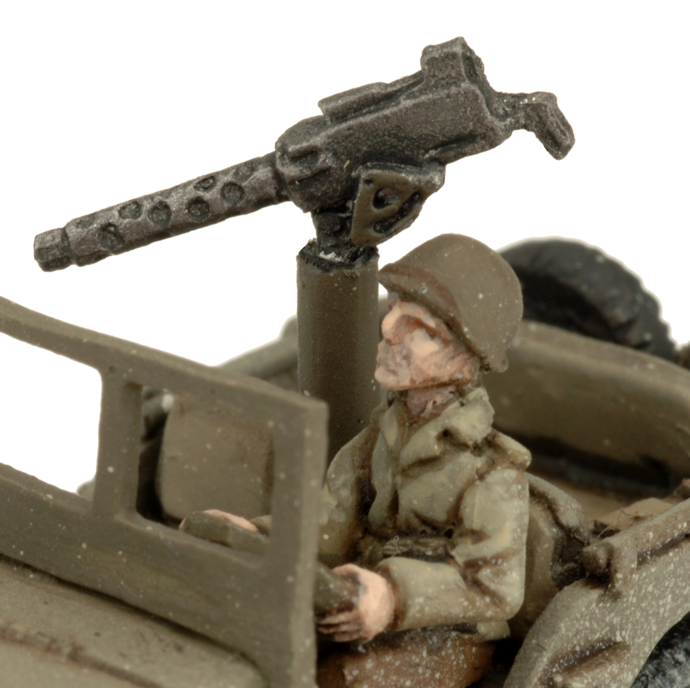 |
 |
|
| Contact the customer service team at customerservice@battlefront.co.nz if you have issues with any components. |
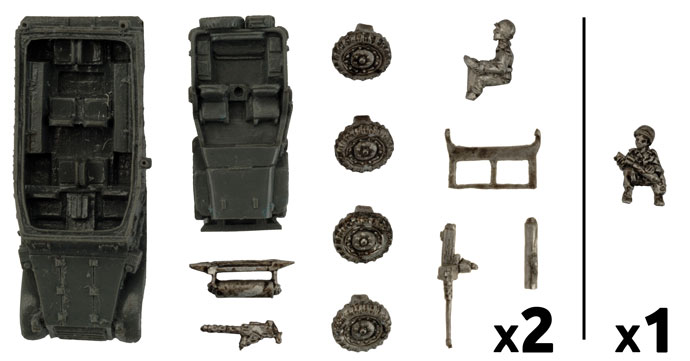 |
| Plastic Commander Sprue (x3) |
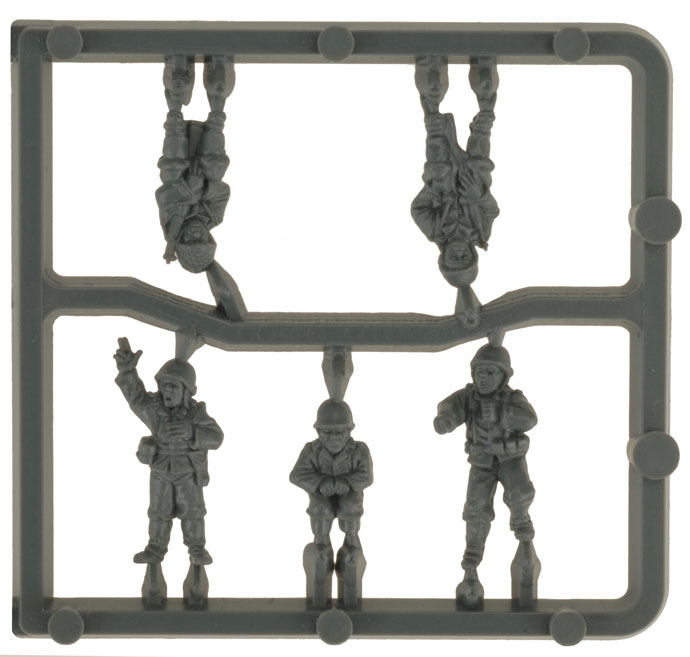 |
| Unit Cards |
| Jeep (x1) | M3A1 Armored Car (x1) |
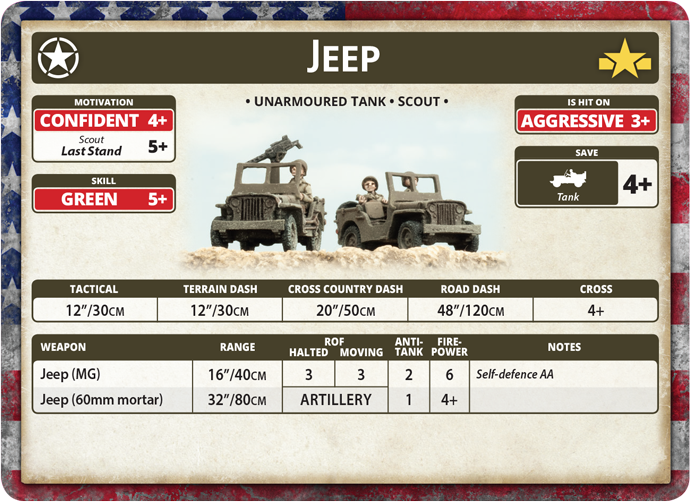 |
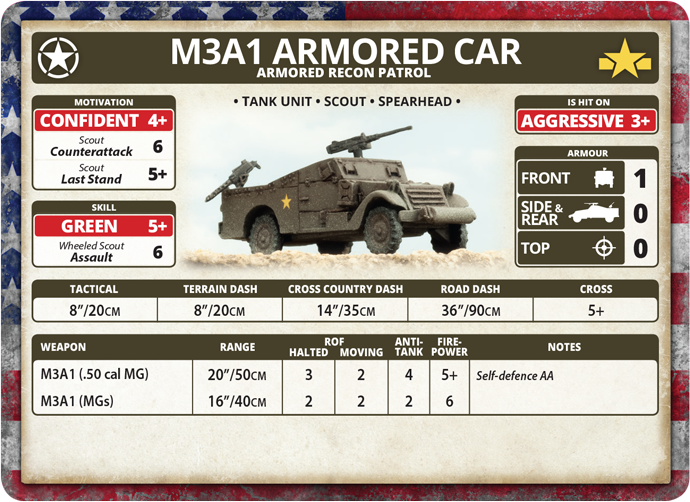 |
 |
 |
 |
